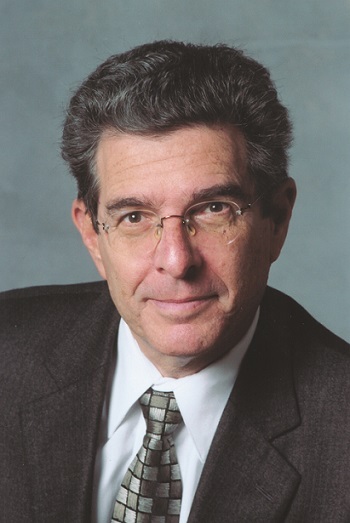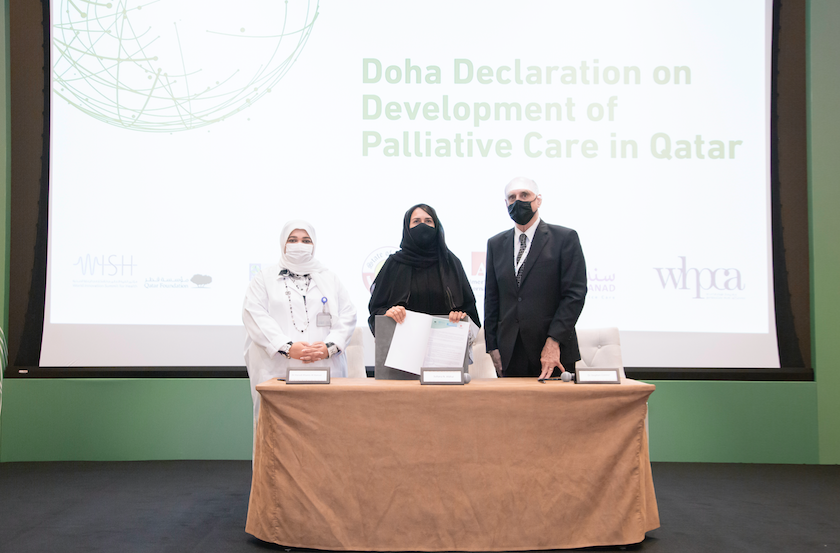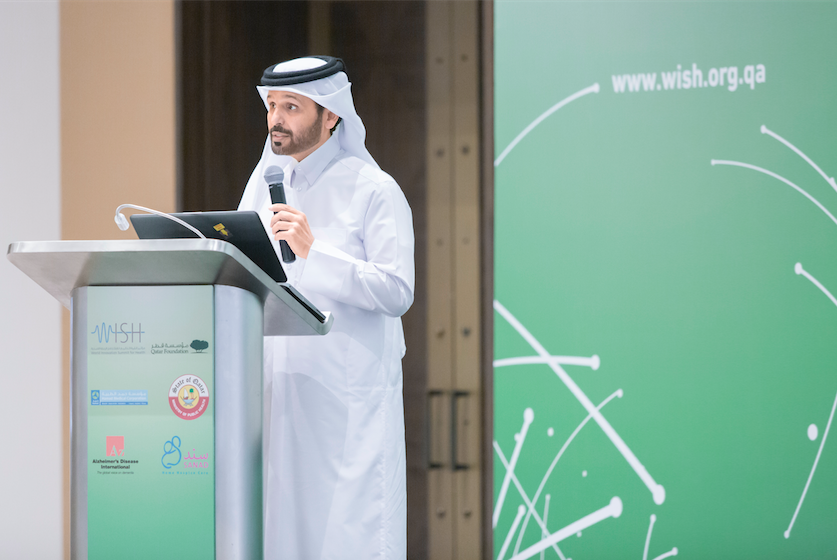GLOBAL REPORT ON DEMENTIA CALLS FOR ‘BRAIN HEALTH’ TO BE ADOPTED BY HEALTH SERVICES AROUND THE WORLD

World Innovation Summit for Health unveils strategy for tackling cure-less disease as diagnosis is set to almost double every 20 years
Doha, Qatar, 17 February 2015: Today the World Innovation Summit for Health (WISH), a global initiative of Qatar Foundation for Education, Science and Community Development, published a report set to tackle the global rise in dementia and identify triggers for treatment, care and funding. The research shows that worldwide 44 million people live with dementia – alarmingly this figure is likely to triple by 2050, to 135 million people¹.
As the report highlights, dementia is one of the major causes of disability and dependency among older people worldwide. In 2010 the global cost of care reached an estimated USD604bn worldwide, equivalent to one per cent global gross domestic product – meaning if dementia care were a country, it would be the world’s 18th largest economy². With such huge social and financial burdens, WISH aims to lead the world’s healthcare community in addressing this devastating and prevalent disease.
Global understanding of dementia lags behind other diseases, often mistaken as a normal part of aging. Whilst there continues to be a social stigma surrounding dementia, the level of necessary funding will not be addressed equivalent to the need – in the U.S. funding for HIV/AIDS research is more than five times the level of that for dementia research, despite the fact there are five times as many Americans with Dementia than with HIV³.
To encourage global focus on this growing epidemic WISH chose dementia as a research theme and appointed Mr Ellis Rubinstein, President and CEO of the New York Academy of Sciences, as Chair of the Dementia Forum. Over the past year Mr Rubinstein has led a multidisciplinary team of distinguished experts, drawn from around the world to research and provide recommendations about the prevention and treatment of dementia focussing on three core themes; prevention, diagnosis and care, and cure.
The report explores a wide range of dementia-related issues, including the current barriers and challenges to addressing dementia, and innovative solutions; including raising public awareness, care innovations, new financial models and more effective regulatory frameworks. The report offers 10 key policy recommendations for governments to consider, aimed at improving both outcomes for individuals living with dementia and for economies struggling to pay for the costs of caring for dementia.
Mr Rubinstein said: “It’s clear that there is not one simple panacea for dementia that lies just beyond our reach; rather, it will take the concerted and integrated efforts of leaders and innovators in all sectors to move the needle on this extraordinary social and economic challenge. This is why we are counting on WISH.”
Professor The Lord Darzi of Denham, Executive Chair of WISH, said: “The social and economic burden of dementia is clear enough today. Yet the future costs to societies and economies will be enormous without significant intervention now to change the course of this global disease. It is the aim of WISH to offer evidence-based actionable recommendations to health-minsters and policymakers globally so that we may all work to reduce the prevalence of this disease.”
Dementia is one of eight reports being presented at the 2015 WISH Summit taking place in Qatar, where leading international health experts are joining an influential community of heads of state, government ministers, academics, clinicians, policy makers and business leaders have met to discuss innovative solutions to some of the most pressing global health challenges.
As well as Dementia, WISH will publish reports on Communicating Complex Health Messages, Diabetes, Delivering Affordable Cancer Care, Patient Safety, Universal Health Coverage, Mental Health and Wellbeing in Children, and Maternal and Newborn Health.
WISH is spearheaded by Qatar Foundation to inspire and diffuse healthcare innovation and best practice. It remains closely aligned to the vision and mission of QF to unlock human potential and reinforces Qatar’s pioneering role as an emerging center for healthcare innovation.
To download the reports and watch the research discussions taking place at WISH, please visit wish.org.qa.
¹ – www.alz.co.uk/research/GlobalImpactDementia201.pdf
² – www.alz.co.uk/research/files/WorldAlzheimerReport2010.pdf
³ – http://alres.com/content/pdf/alzrt76.pdf
ENDS
Notes to Editors:
For more information please contact:
Noha El Afify
WISH Communications Manager
nelafify@wish.org.qa
+974 7768 6624
A call to action: the global response to dementia through policy innovation
THE REPORT’S FOCUS
Dementia has severe effects on the quality of life of individuals and causes tremendous strain on both caregivers and healthcare systems. The costs of providing dementia care are substantial – and unsustainable – and a reliance on informal care in high-, middle- and low-income countries predominates.
There is therefore an increasing and urgent need to identify and disseminate innovative and cost-effective approaches to early diagnosis and disease management. The World Dementia Council and other organizations have called for the development of a cure or disease-modifying therapy by 2025. Alongside work to progress this ambition, there is also significant work being undertaken in prevention and risk reduction, as well as diagnosis and care.
The report provides an overview of the global dementia landscape – spanning the key themes noted above to the four main mechanisms to improve outcomes for individuals with dementia. These include: awareness, education and participation; research, trials and regulation; health and social care systems; and financial innovation.
REPORT INSIGHTS
Through a series of ten key policy recommendations for governments to consider, the report outlines what can be done now to reduce the burden caused by dementia today and in the future. These recommendations aim to achieve improved outcomes for individuals living with dementia, for economies struggling to pay for the costs of care, and for societies facing the increasing prevalence and burden of dementia.
The recommendations can be summarized as follows: develop a plan to address dementia nationally; increase awareness of dementia; expand healthy living to include brain health; improve the evidence base for dementia; improve dementia care; strengthen integrated and co-ordinated health and social care systems; institute and fund longitudinal studies; reduce barriers to drug development; commit government investment of at least one percent of a country’s cost of care; and facilitate innovative finance mechanisms.
THE FORUM CHAIR

Forum Chair: Ellis Rubinstein
President and CEO, The New York Academy of Sciences
Ellis Rubinstein is an innovator and change agent. Since joining the New York Academy of Sciences in November 2002, Mr Rubinstein has increased membership to more than 22,000 scientists in 100 countries. The President’s Council that he created includes 27 Nobel Laureates and a score of CEOs and government leaders from across the globe.
Mr Rubinstein played an instrumental role in the creation of the Academy’s Alzheimer’s Disease and Dementia Initiative, which works with partners around the world to accelerate the transfer of basic research about disease mechanisms into the development of new methods for diagnosis, treatment, and prevention.
Before joining the Academy, Mr Rubinstein pursued a distinguished career as a science journalist, serving as Editor of Science magazine between 1993 and 2002. Mr Rubinstein was a member of the World Economic Forum for six years; he is a Fellow of the American Association for the Advancement of Science and a Member of the Institute of Electrical and Electronics Engineers.
About the World Innovation Summit for Health:
The World Innovation Summit for Health (WISH) is a global healthcare community dedicated to capturing and disseminating the best evidence-based ideas and practices. WISH is an initiative of Qatar Foundation for Education, Science and Community Development (QF) and is under the patronage of Her Highness Sheikha Moza bint Nasser, its Chairperson.
The inaugural WISH Summit took place in Doha in 2013 and convened more than 1,000 global healthcare leaders. Through international summits and a range of on-going initiatives, WISH is creating a global community of leading innovators in healthcare policy, research and industry.
Together, they are harnessing the power of innovation to overcome the world’s most urgent healthcare challenges and inspire other stakeholders to action.
Qatar Foundation – Unlocking Human Potential:
Qatar Foundation for Education, Science and Community Development is a private, non-profit organization that is supporting Qatar on its journey from a carbon economy to knowledge economy by unlocking human potential for the benefit of not only Qatar, but the world. Founded in 1995 by His Highness the Father Emir Sheikh Hamad Bin Khalifa Al Thani, QF is chaired by Her Highness Sheikha Moza bint Nasser.
QF carries out its mission through three strategic pillars: education, science and research, and community development. QF’s education pillar brings world-class universities to Qatar to help create an education sector in which young people can develop the attitudes and skills required for a knowledge economy.
Meanwhile, its science and research pillar builds Qatar’s innovation and technology capacity by developing and commercializing solutions through key sciences. Finally, its community development pillar helps foster a progressive society while also enhancing cultural life, protecting Qatar’s heritage and addressing immediate social needs in the community.
For a complete list of QF’s initiatives and projects, visit www.qf.org.qa. For more information about Qatar Foundation, please contact our press office at: pressoffice@qf.org.qa
The New York Academy of Sciences: Inspiring Centuries of Scientific Progress
The New York Academy of Sciences is an independent, not-for-profit organization that since 1817 has been committed to advancing science, technology, and society worldwide. With more than 22,000 members in 100 countries around the world, the Academy is creating a global community of science for the benefit of humanity.
The Academy’s core mission is to advance scientific knowledge, positively impact the major global challenges of society with science-based solutions, and increase the number of scientifically informed individuals in society at large. Please visit us online at www.nyas.org.



